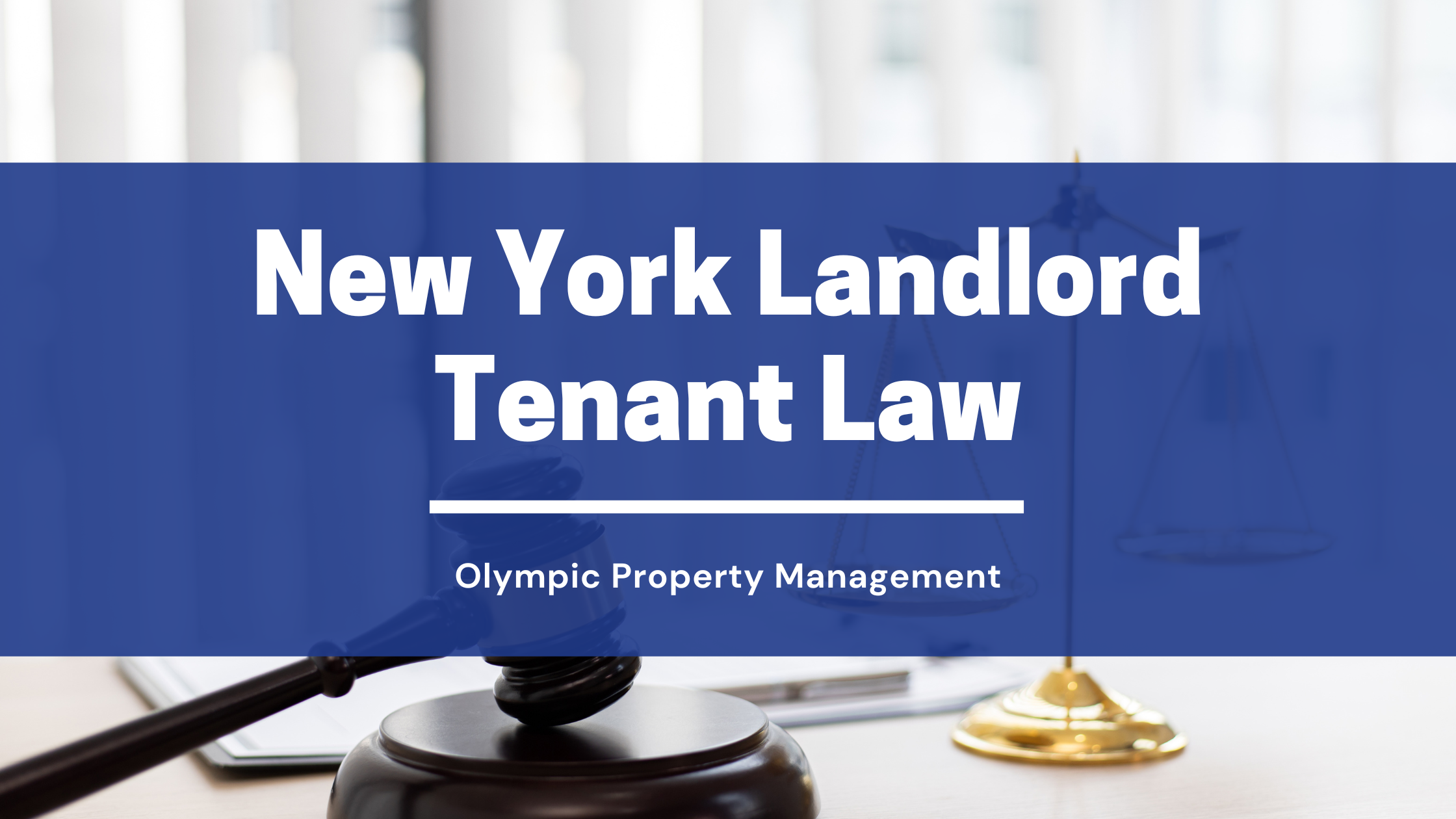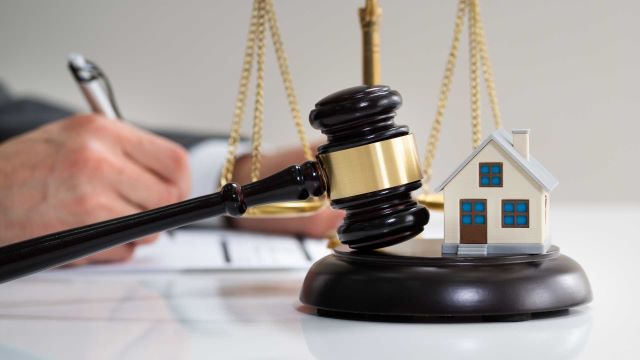

The landlord-tenant law in New York regulates the long-term rental business in the state. As a landlord in New York, it’s crucial to understand the New York landlord-tenant law to know your rights and responsibilities, as well as those of your tenants.
To avoid any issues during the course of a tenant’s lease term, both landlords and tenants should stay in compliance with the law. Knowing the law also allows you to deal with any legal issues should they arise during the term of the tenancy.
Required Landlord Disclosures in New York
According to New York law, landlords are required to disclose certain information to their renters. The following are the common mandatory disclosures:
Non-Refundable Fees
Any non-refundable fees are considered an optional disclosure. However, if a New York landlord opts to charge a non-refundable fee, it’s recommended that such a charge must be written in the lease agreement. Otherwise, the tenant may claim a refund upon the end of the lease.
Security Deposit
In New York, landlords are allowed to charge a security deposit as long as they provide tenants with a written disclosure containing all necessary information.
Landlords are required to inform tenants in writing about how the security deposit funds will be kept, including the name of the financial institution, its address, and the total amount. Landlords may also include the bank account number in the security deposit disclosure.
Rights of Domestic Violence Victims
Under New York law, victims of domestic violence have special rental provisions for their protection.

Although there’s no clear statute stating that landlords should include a specific clause in the rental agreement, landlords should allow victims of domestic violence to break the lease with court approval. It’s best if landlords include domestic violence survivors’ rights in the rental agreement.
Truth in Renting Act
There is no statute in the landlord tenant law in New York about including a provision regarding the Truth in Renting Act.
Owner or Agent Identity
In New York, the landlord’s name and address, as well as those of the authorized representatives of the landlord, are optional disclosures.
Landlords are recommended to include this information in the rental agreement. It can help create better communication between tenants and landlords, especially for important notices and demands.
It’s important for landlords or any authorized individual or entity to act on behalf of the owner to provide their address and contact information.
Move-In Checklist
A move-in checklist is also an optional disclosure in New York. Landlords are recommended to include this in the lease or rental agreement, as it holds the tenant accountable for any damages that aren’t part of normal wear and tear.
It can also be used as a reference for the tenant to return the rental unit back to its original state before they move out of the rental unit.
New York Tenant Rights and Responsibilities
A New York tenant has basic rights and responsibilities, such as:
- The right to a habitable dwelling place
- Protection from any illegal retaliation
- The right to terminate the lease early due to any of the following reasons:
An uinhabitable unit, an early termination clause, active military duty, domestic violence and stalking, landlord harassment, and being senior citizens or having other serious health issues

- Take legal action if the landlord fails to comply with the terms of the lease
- Receive their security deposits less any allowable deductions within the allowable time frame
- The right to fair housing opportunities
A tenant in New York also have responsibilities, such as:
- Pay rent
- Keeping the unit clean, sanitary, and free from trash
- Maintaining the upkeep of the rental unit by making small repairs and maintenance
- Reporting any repair or maintenance issues to the landlord
- Keeping the appliances, furniture, and fixtures clean and sanitary
- Maintaining peace and order by not disturbing other tenants or neighbors
New York Landlord Rights and Responsibilities
As a New York landlord, you have basic rights as well, such as the following:
- To receive rent payments on a timely and regular basis
- To charge renters for damages that exceed normal wear and tear
- To evict a tenant who violates the lease
- To collect a security deposit
- To increase the rent as long as they provide a tenant with advance notice for an increase of 5% or more
A New York landlord also has responsibilities, such as:
- Providing a habitable dwelling for tenant
- Price their unit accordig to local rent control laws
- Addressing repair requests within a reasonable timeframe
- Complying with the health and safety building codes
- Returning the security deposit within 14 days
- When necessary, carry out the legal New York eviction process
- Providing the notice requirements for the rental agreement or lease termination
An Overview of Landlord-Tenant Laws in New York
Tenant Privacy and Landlord’s Right to Enter the Dwelling
A New York tenant should provide landlords reasonable access to the unit.

A New York landlord may enter to make necessary repairs, show the unit to a prospective tenant or buyer, and any other circumstances written in the lease.
Unless there’s an emergency, a written notice of at least 24 hours must be given to the tenants before entry.
Maintenance and Repairs
Landlords should make sure that the rental unit is habitable and complies with safety and health building codes. Repairs should be made within a reasonable timeframe.
If not, tenants have the right to withhold their rent payments or make the necessary repairs themselves and deduct the cost from the rent.
New York’s Housing Discrimination Laws
The The Fair Housing Act prohibits discrimination against tenants based on race, color, religion, national origin, disability, sex, or familial status.
In New York, additional protections are provided for tenants, prohibiting discrimination based on age, sexual orientation, gender identity, marital status, and military status.
Security Deposits
In New York, landlords may charge their tenant a maximum security deposit amount not exceeding one month’s rent.
Landlords should return the security deposit, minus allowable deductions, within 14 days after the tenant vacates the rental unit.
Required Landlord Disclosures
As a landlord in New York, you must provide the following mandatory disclosures:
- Fire Sprinkler System
- Security Deposit Holdings
- Certificates of Occupancy
- Lead Paint
- Bed Bug Disclosure
- Stovetop Protections Notice
Renters’ Rights to Withhold Rent in New York
Under New York landlord-tenant laws, if landlords fail to provide the necessary repairs within a reasonable timeframe, the tenant has the right to withhold their rent.
Small Claims Lawsuits in New York
The small claims court in New York will hear rent-related disputes, including eviction proceedings.

The amount of disputes range from $3,000 to $10,000, depending on the location of the rental.
Conclusion
As a landlord in New York, it’s important to be aware of your New York landlord-tenant laws so that you know your rights and responsibilities, as well as those of your tenants.
Have questions about being a landlord in New York? Contact Olympic Property Management! We’re a full-service property management with the knowledge and expertise to ensure that you’re on the right track!
Disclaimer: This blog should not be used as a substitute for legal advice from a licensed attorney in your state. Laws change, and this post might not be updated at the time of your reading. Please contact us for any questions you have in regards to this content or any other aspect of your property management needs.